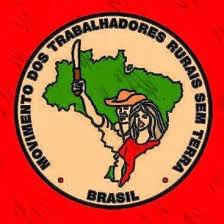Forced eviction of human rights defenders and residents of urban resettlement camp in Rio Grande do Norte
On 7 August 2019, residents of the Marisa Letícia Commune, which is organised by the Landless Rural Workers Movement (MST) in São Gonçalo do Amarante, Rio Grande do Norte, were forcefully evicted by the Military Police, without previous notification. The 140 families that lived in the Commune remain displaced.
 The Movement of Landless Rural Workers (MST) is the largest social movement pressuring for agrarian reform in Brazil, to fight the country’s historically high land concentration and the human rights violations associated with it. The camps and settlements organised by rural workers and human rights defenders are characterised by sustainable family agriculture and commercialisation of produce surplus, and they are often responsible for the supply of grains and vegetables in surrounding cities.
The Movement of Landless Rural Workers (MST) is the largest social movement pressuring for agrarian reform in Brazil, to fight the country’s historically high land concentration and the human rights violations associated with it. The camps and settlements organised by rural workers and human rights defenders are characterised by sustainable family agriculture and commercialisation of produce surplus, and they are often responsible for the supply of grains and vegetables in surrounding cities.
On 7 August 2019, residents of the Marisa Letícia Commune, which is organised by the Landless Rural Workers Movement (MST) in São Gonçalo do Amarante, Rio Grande do Norte, were forcefully evicted by the Military Police, without previous notification. The 140 families that lived in the Commune remain displaced.
The Marisa Letícia Commune was established on 21 June 2019 by 140 families who occupied an urban land plot of 1 hectare that was left unused by the state company Datanorte (Rio Grande do Norte’s Data Processing Company), where they began to grow produce to subsist. The families are members of the Movimento dos Trabalhadores Rurais Sem Terra (MST), the largest social movement pressuring for agrarian reform in Brazil, to fight the country’s historically high land concentration and the human rights violations associated with it. The camps and settlements organised by rural workers and human rights defenders are characterised by sustainable family agriculture and the commercialisation of produce surplus, and they are often responsible for the supply of grains and vegetables in surrounding cities.
At 5 am on the morning of 7 August 2019, the human rights defenders and more than 140 families who lived on the Marisa Letícia Commune, organised by the MST in São Gonçalo do Amarante, Rio Grande do Norte, were violently evicted by the Military Police. The residents were not previously notified, and could not prepare to leave. The eviction was carried out with violence, with the use of tractors to destroy the belongings of those who lived there. Police officials threatened to take the children away from the families into a public shelter, with the aid of social workers, if their mothers did not fulfil the deadline of less than one hour to vacate the land. A number of human rights defenders are being criminalised in connection to the land dispute and will have to respond to fabricated charges of violations of environmental law.
On the previous day, 6 August 2019, an agreement was reached between human rights defenders living in the commune and the state company, according to which the families were allowed to stay until public authorities secured a place where they could permanently live. Government authorities had then proceeded to register all families to be included in resettlement programs.
However, the judge responsible for the land title dispute over the area ignored the agreement, claiming that the occupied space was an environmental reserve. The decision failed to acknowledge that the Datanorte land plot has 6 hectares, 5 of which constitute an environmental reserve, and the remaining area which was occupied by the commune. The state-level Committee for Agrarian Conflicts (Comitê Estadual de Conflitos Agrários), created for the purposes of preventing and mediating solutions in agrarian conflicts, was not notified of the decision. To date, the human rights defenders and families remain displaced, and most of the 140 families are temporarily sleeping on a nearby school’s sports court.
This is not the first time that the Marisa Letícia Commune has been targeted by authorities. On the first day of the camp, on 21 June 2019, members of the Military Police arrived in 10 cars to try to force their eviction without a mandate. On that occasion, the police officers threatened human rights defenders that lived there with arbitrary arrest. The belongings of a number of families were burned, including the MST’s flag that identified the commune.
Front Line Defenders is worried at the arbitrary and violent treatment that members of MST have been subjected to in Rio Grande do Norte. Front Line Defenders notes with concern the growing violence around land rights in Brazil, associated with public policies and high-level smear campaigns that incite violence.
